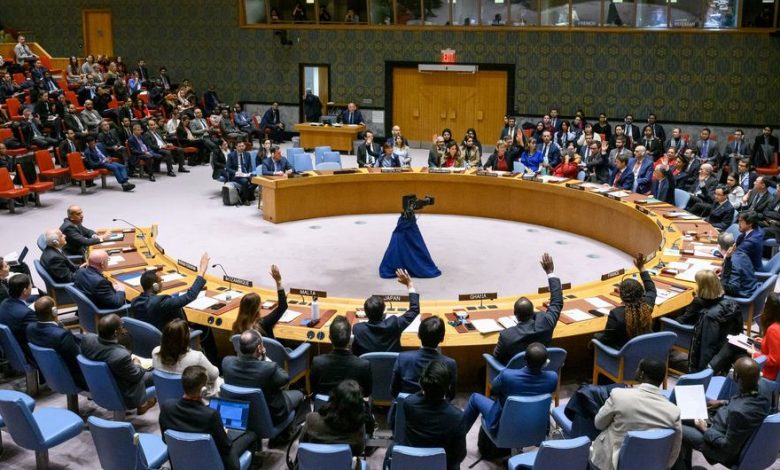Reports
UN Security Council – Details of a Heated Sudan Session

The UN Security Council held a session on Monday to discuss the Sudan crisis, with UN Secretary-General Antonio Guterres presenting a report.
Sudanese Nightmare
On Monday, Guterres reported that conditions are not conducive to deploying a UN force to Sudan amid escalating local and international calls to protect civilians. In his address to the Security Council, he stated that Sudan’s people face a nightmare of violence, hunger, disease, and displacement, with increasing ethnic violence threatening regional stability. Guterres noted the worsening conditions in Sudan, where 25 million people are in urgent need of assistance, saying, “Sudanese people live a nightmare of violence. Thousands of civilians have been killed, facing indescribable horrors including widespread rape and sexual assault.”
Guterres also highlighted the country’s food crisis, with more than 750,000 people facing catastrophic food insecurity, as famine looms in displacement sites in North Darfur. Sudan is also grappling with cholera, malaria, dengue fever, and measles, amid a collapse of essential health systems, transportation, water networks, and agricultural production lines. He added that the conflict had led to Sudan experiencing the world’s largest displacement crisis, with more than 11 million people uprooted since hostilities between the Sudanese military and RSF began in April 2023, including nearly 3 million crossing into neighboring countries.
The Secretary-General called on both sides to end hostilities and negotiate, noting that instead of easing tensions, both parties are intensifying military action, with external forces exacerbating the conflict.
Undermining Stability
In contrast, Sudan’s Permanent Representative to the UN, Ambassador Al-Harith Idris, urged the Security Council to disarm the RSF, describing it as a terrorist militia reliant on foreign mercenaries for implementing destabilizing agendas. He called for classifying the RSF and its foreign mercenaries as terrorist groups engaged in an unprecedented form of racial terrorism.
Idris highlighted the importance of a unified national army, requesting support for a disarmament, demobilization, and reintegration (DDR) program and urging the repeal of Security Council Resolution 1591, which he argued prevents civilian protection in Darfur.
Ambassador Idris reiterated Sudan’s rejection of any expansion of arms embargoes, emphasizing that Sudanese armed forces are a national institution tasked with safeguarding the country. He also called for Sudan’s police forces, with their extensive international peacekeeping experience, to be provided with special support for enforcing humanitarian laws and securing safe zones for displaced civilians.
Advanced Weaponry
Sudan’s representative revealed that “30 trucks” carrying advanced weapons, anti-aircraft guns, and ammunition entered the border area between Sudan and Chad. He noted that thousands of mercenaries from Africa and the Sahel had been detected moving into conflict zones, as relief convoys enter Sudan under RSF protection without government oversight.
Sudan’s humanitarian commission, Ambassador Idris concluded, has allowed entry for 105 workers from international NGOs and 42 UN agency staff in recent months, with permissions granted for more than 134 NGO operations across Sudan. He highlighted a severe shortfall in humanitarian aid, with around 16.3 million people lacking multi-sector humanitarian support, and called for humanitarian aid to be provided impartially and without political or economic agendas.



